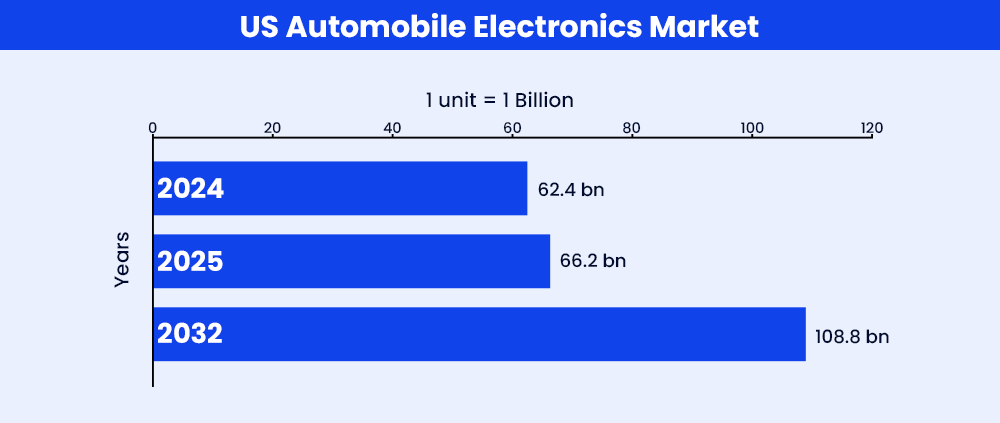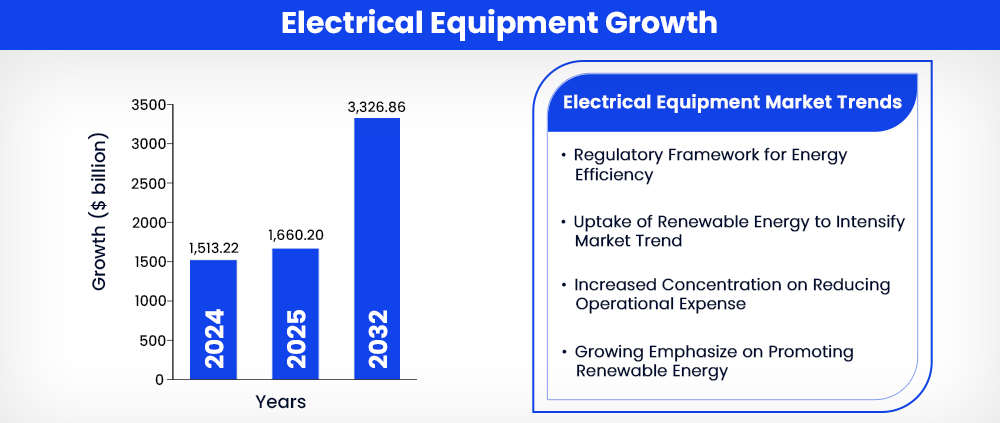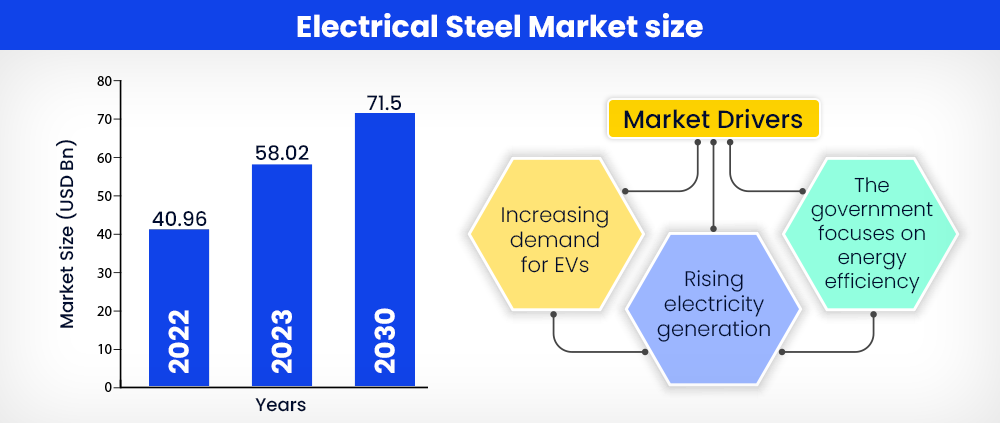Expert Interviews
- University Reviews
- Career Guide
 Video Counseling
Video CounselingImportant Facts
- Ask any Question - CV Forum

Is Electrical Engineering Still A Good Career Choice?
Shalini Adhana Jan 10, 2026 1.1K Reads

The Indian electrical equipment market is expected to grow to $125 billion by 2027, with a CAGR of 11.68%. The field of engineering plays a necessary role in sectors such as aircraft, automobiles, electric vehicular technology, medical diagnostics, wireless technology, surgical equipment, and semiconductor chips that are used in computing and artificial intelligence.
Electrical Engineering is the study of the transmission of electrical power. Students explore where they can plan, design, develop, and maintain electrical systems to generate power without wasting resources. The program includes concepts such as electricity, electromagnetic theory, and electronic systems, which also cover electrical circuit theory, electromagnetism, electrical machines, power electronics, digital signal processing, and signals and systems.

Nowadays, B.Tech Electrical Engineering program is expanding due to advancements in technology. Knowledge of electrical engineering is required to design circuits that are used for computers, smartphones, developing power systems to the needs of the larger cities, and building wireless communication networks. Electrical Engineering is crucial for the development of the nation to generate adequate power to meet the requirements without any delay.
What is the core Responsibility of Electrical Engineers?
Electrical Engineers work with electric and magnetic properties to develop complex electrical and electronic devices. The role of the electrical engineers is to design, build, experiment, and analyze machines, systems, and subsystems.
Core Specialization in Electrical Engineering:To become an electrical engineer, applicants must have knowledge about the discipline mentioned below:
- Electric Power and Energy: The field delves into the sustainability of the power systems and explores all the renewable energy sources, like wind and solar power. It is also concerned with developing power plants and the distribution of electricity to the consumers.
- Electronics and Circuit Design: Circuits are required to perform specific tasks like signal amplification, processing, power conversion, and visual display in automobiles, smartphones, and computers. Designing advanced circuits and their equipment, and troubleshooting after installation are the responsibilities of electrical engineers.
- Telecommunications: In this subfield of electrical engineering, engineers are contribute by offering the technologies that transfer and receive digital and analog data, dealing with voice and video signals over miles via optical fibres, radio waves, and copper cables. It also focuses on developing wireless and telecommunication networks such as cellular networks, satellite systems, and the internet.

- Imaging and Signal Processing: Various techniques are developed by electrical engineers to interpret signals like audio, video, sensor, and computer data. Engineers help extract signals, reduce noise, or interference, and improve signal quality for applications in data transmission, speech recognition, image processing, and medical imaging.
- Control Engineering: Electrical engineers design control systems that regulate the functioning of machines, electronic devices, and other systems. By utilizing data from sensors, such as those measuring temperature, pressure, or position, along with advanced mathematical and computational techniques, control engineering ensures precise system performance. Effective control is essential across numerous fields, including manufacturing, transportation, and robotics.
Electrical Engineering Course: Highlights
|
Particulars |
Details |
|
Courses |
B.Tech and M.Tech |
|
Courses Duration |
B.Tech- 3/4 years M.Tech- 2 years |
|
Eligibility |
B.Tech 3 years ( Diploma Holders and working experience) 4 years (after 12th and entrance exam or direct admission) M.Tech 2 years |
|
Examination Type |
Semester-Type |
|
Entrance Exam |
|
|
Colleges |
IIT Bombay, IIT Delhi, VIT Vellore, IIT Madras, DTU, BITS Pilani, SRM Institute of Science and Technology, and NIT Trichy |
|
Course Fees |
INR 3 lakh to 8 lakhs |
|
Salary |
INR 4 LPA to 6 LPA |
|
Job Profiles |
Electrical Engineer, Electronics Engineer, Electrical Design Engineer, Power Systems Engineer, Broadcast Engineer, Systems Analyst, Control System Engineer. |
|
Recruiters |
BHEL, Tata Electric Companies, Siemens, Havells India Ltd, MM Enterprises, Insight Global, General Electric |
Electrical Engineering for Working Professionals
Those who are interested in Electrical Engineering but can’t attend the regular classes to complete their graduation in engineering. For such candidates, the B.Tech for Working Professionals and M.Tech for Working Professionals programs are designed so that candidates can attend the classes while managing their schedule.
B.Tech Electrical Engineering for Working Professionals
The program is especially designed for diploma holders who want to finish their graduation in engineering. Such programs are introduced as lateral entry or flexible timing shift programs. For the convenience of the learners, classes are conducted on weekends, in the evening, and online. Furthermore, these programs are approved by the AICTE and UGC.
The duration of the program is 3 years. The learners are promoted to the second year of the program because they have completed the 3-year polytechnic diploma, a so they have foundational knowledge of the subject, due to which they are encouraged and skip the first year of the engineering graduation program.
Eligibility for B.Tech Working Professionals
learners after 12th standard isn’t eligible for the B.Tech for Working Professionals program. This course can be enrolled by the polytechnic diploma in engineering if the condition is fulfilled as mentioned below:
- Candidates must complete their diploma in engineering from a recognized institute or college.
- They must have earned an aggregate score of 45%-50% overall.
- Applicants are required to have working experience of 1 to 2 years in a similar field.
- There is no age limit to enroll for the program, which means experienced working professionals can enroll for the program.
- Candidates can directly enroll for the program as most of the universities don’t conduct the entrance exam for B.Tech for Working Professionals.
Syllabus for B.Tech Electrical Engineering
The curriculum for both the regular B.Tech program and the B.Tech for Working Professionals program is fundamentally the same in terms of academic depth, subject coverage, and technical content. Both formats are designed to ensure that students, whether they are fresh high school graduates or experienced professionals, develop a strong foundation in engineering principles, problem-solving skills, and specialized technical knowledge.
Here's a basic table outlining the typical syllabus for a B.Tech in Electrical Engineering across 4 years (8 semesters). Note that the exact syllabus can vary slightly by university, but this is a common structure:
|
B.Tech Electrical Engineering Syllabus |
|
|
Semester 1 |
Semester 2 |
|
Engineering Mathematics I Engineering Physics Basic Electrical Engineering Programming for Problem Solving Engineering Graphics Basic Electrical Engineering Lab Physics Lab |
Engineering Mathematics II Engineering Chemistry Electrical Circuit Analysis Elements of Mechanical Engineering Communication Skills Chemistry Lab |
|
Semester 3 |
Semester 4 |
|
Engineering Mathematics III Electrical Machines I Network Theory Digital Electronics Analog Electronics Electrical Measurements and Instrumentation Digital Electronics Lab |
Electrical Machines II Control Systems Electromagnetic Fields Signals and Systems Power Generation Engineering Control Systems Lab Electrical Machines Lab |
|
Semester 5 |
Semester 6 |
|
Power Systems I Microprocessors and Microcontrollers Power Electronics Electrical Machine Design Professional Elective I (e.g., Renewable Energy Systems) Microprocessors Lab |
Power Systems II Electrical Drives and Control Industrial Automation Power System Protection Professional Elective II (e.g., Smart Grids) Power Systems Lab |
|
Semester 7 |
Semester 8 |
|
High Voltage Engineering Electric Vehicle Technology (optional/new trends) Open Elective I (choice-based) Project Phase I (Minor Project) Internship/Industrial Training |
Flexible AC Transmission Systems Open Elective II (choice-based) Major Project Seminar and Technical Presentation |

Colleges offering B.Tech for Working Professionals
|
Colleges Offering B.Tech for Working Professionals |
|
|
Colleges |
Fees (INR per Semester) |
|
B.Tech Electrical Engineering Lingaya’s Vidyapeeth University |
50,000 |
|
38,000 |
|
|
40,000 |
|
|
HRIT |
40,000 |
|
BITS Pilani |
77,100 |
M.Tech Electrical Engineering for Working Professionals
M.Tech Electrical Engineering for Working Professionals is a 2-year program for employees who want to enhance their skills. The program follows a hybrid mode of education where students are offered online sessions, and they have to attend the lab sessions for practical knowledge.
The M.Tech Electrical Engineering for Working Professionals program is a specially curated, part-time or blended learning course aimed at those already employed in technical roles. Unlike a regular full-time M.Tech, this program offers classes during evenings, weekends, or via online platforms, allowing working engineers to earn an advanced degree while continuing their job.
It covers advanced electrical engineering concepts, research methodologies, real-world applications, and industry-focused innovations, preparing professionals for leadership roles or specialized positions in industries such as energy, manufacturing, automation, robotics, and electronics.
Eligibility for M.Tech for Working Professionals
After completing the graduation engineering program, candidates can apply for the M.Tech for Working Professionals program if they don’t want to apply for the regular M.Tech. Here are the conditions to apply for the M.Tech for Working Professionals:
- Candidates who have completed their graduation in the relevant field can apply for the M.Tech for Working Professionals program in the same field.
- Candidates must have 1 year of experience in a similar field.
- There is no entrance exam for the M.Tech for Working Professionals program.
- Candidates must have earned 45%-50% overall to enroll for the M.Tech Electrical Engineering Program for Working Professionals.
Syllabus for M.Tech Electrical Engineering for Working Professionals
Here's a detailed syllabus overview for M.Tech in Electrical Engineering for Working Professionals, typically structured over 4 semesters (2 years). The exact subjects may vary slightly across universities, but the core curriculum remains similar and is aligned with industry standards and AICTE guidelines.
|
M.Tech Electrical Engineering for Working Professionals Syllabus |
|
|
Semester 1 |
Semester 2 |
|
Advanced Power System Analysis Power Electronics and Drives Electrical Machine Design Mathematical Methods for Engineers Lab/Practical |
Advanced Control Systems Renewable Energy Systems High Voltage Engineering Embedded Systems in Electrical Engineering Lab/Practical |
|
Semester 3 |
Semester 4 |
|
Smart Grid Technologies Electric Vehicle (EV) Systems Flexible AC Transmission Systems (FACTS) Research Methodology & Technical Writing Mini Project / Industry Project I |
Dissertation / Major Project |
Elective Subjects (University Dependent)
- Smart Sensors and IoT in Power Systems
- Artificial Intelligence Applications in Electrical Engineering
- Energy Storage Systems
- Industrial Automation and SCADA
- Machine Learning for Electrical Engineers
Best Colleges for M.Tech for Working Professionals
|
M.Tech for Working Professionals Colleges |
|
|
Colleges |
Fees (INR per Semester) |
|
50,000 |
|
|
38,000 |
|
|
Mangalayatan University |
36,000 |
Why Should I Enroll for the Electrical Engineering for Working Professionals Program?
Here are the following benefits of enrolling in Electrical Engineering for Working Professionals:
- Candidates can advance their careers without taking a break
- It is the easiest way to boost the earning potential and promotion opportunities.
- Learners can upgrade their technical skills with industry-relevant knowledge.
- The Electrical Engineering program for working professionals provides specialized knowledge in high-demand areas.
- Applicants can further expand their career options at the global level.
- Experiences are shared with the learned faculties and industry experts.
- The program offers an opportunity to learners so that they can immediately implement their learning.
- Advanced learners can develop their professional network with the support of their batchmates, faculty, and experts.
Careers After Electrical Engineering
Learners can build a career in various subfields available in Electrical Engineering:
|
Career Opportunities After Electrical Engineering |
||
|
Electronic circuit and system design |
Microelectronics and semiconductors |
Electric power systems, transmission, distribution, and maintenance |
|
Control systems |
Telecommunication systems |
Signal and image processing |
|
Optics and photonics devices and systems |
Instrumentation |
Embedded hardware/software systems |
|
Automotive electric systems |
Aerospace electronics |
Remote sensing |
What Skills Do Electrical Engineers Need?
Advanced learners are advised to work on the skills mentioned below to become successful electronic engineers:
- Theories and laws associated with electric and magnetic behavior.
- Mathematics
- Computer in relation to electrical devices, electronic circuits, and systems without a physical prototype.
- Strong hold on Chemistry, Physics, and Materials.
Role and Duties of an Electrical Engineer
Key Function Performed by an Electrical Engineer is:
- Electrical Engineers have to develop components, products, and systems using mathematical calculations and computer-based simulations.
What Is the Salary of an Electrical Engineer?
Salaries may vary based on location, whether you are applying in Bengaluru, Pune, or Hyderabad. Moreover, engineers with M.Tech, GATE qualification, or international certifications can command higher packages.
|
Electrical Engineer Salary In India |
|||
|
Experience Level |
Role/Position |
Average Annual Salary (INR) |
Top Salary Range (INR) |
|
Fresher (0–1 year) |
Junior Electrical Engineer |
₹2.5 LPA – ₹4.5 LPA |
Up to ₹6 LPA |
|
1–3 Years |
Electrical Design Engineer / Site Engineer |
₹4 LPA – ₹6.5 LPA |
Up to ₹8 LPA |
|
3–6 Years |
Project Engineer / Maintenance Engineer |
₹6.5 LPA – ₹9 LPA |
Up to ₹12 LPA |
|
6–10 Years |
Senior Engineer / Lead Engineer |
₹9 LPA – ₹14 LPA |
Up to ₹18 LPA |
|
10+ Years |
Manager / Chief Engineer |
₹14 LPA – ₹20+ LPA |
₹25 LPA and above |
Salary by Sector
|
Sector |
Salary Range (INR per annum) |
|
Power Generation & Distribution |
₹4 LPA – ₹15 LPA |
|
Renewable Energy |
₹5 LPA – ₹14 LPA |
|
Manufacturing & Automation |
₹4 LPA – ₹12 LPA |
|
Oil & Gas / Heavy Industries |
₹6 LPA – ₹20 LPA |
|
IT / Embedded Systems |
₹5 LPA – ₹18 LPA |
- Source: naukri.com
The Scope of Electrical Engineering
The scope of electrical engineering extends into both traditional and emerging sectors. Engineers work in power plants, manufacturing units, telecommunications, and infrastructure projects. With the rise of digital transformation, there's increasing demand in areas like electric vehicles, smart grids, renewable energy, industrial automation, robotics, and the Internet of Things (IoT).
Graduates can pursue roles such as electrical design engineer, power systems engineer, control systems specialist, or embedded systems developer. With experience, they can take on leadership roles in project management, R&D, or technical consulting.
Conclusion
The demand for electrical engineering is growing in the market, so it is crucial for the learners and working professionals to upgrade their skills. In case, they can’t attend the regular B.Tech program, candidates can apply for the B.Tech for Working Professionals or M.Tech for Working Professionals electrical engineering programs as per their requirement.
FAQs (Frequently Asked Questions)
Electrical engineering is the field of engineering that deals with the study, design, and application of equipment, devices, and systems that use electricity, electronics, and electromagnetism.
Yes, electrical engineering continues to be in high demand, especially with the rise of electric vehicles, renewable energy, automation, smart cities, and IoT systems.
The top industries hiring electrical engineers are Renewable Energy (Solar, Wind), Electric Vehicles, Power & Utility Companies, Manufacturing and Automation, IT & Embedded Systems
And Smart Infrastructure Development
No, part-time and online technical programs are invalid and not approved by UGC and AICTE. However, applicants can apply for the hybrid mode of engineering program, B.Tech/M.Tech for Working Professionals. The program is offered by Sanskriti University and Lingaya’s Vidyapeeth University.
Online B.Tech electrical engineering is an invalid program. Instead of online, advanced learners can apply for the hybrid mode program meant for working professionals. The eligibility to apply for the program is that candidates must have completed their diploma in engineering. And they must have working experience in the relevant field.
As per AICTE, Online/Part-time B.Tech programs are invalid. For the convenience of learners, there is a B.Tech program for working professionals. The syllabus of the B.Tech for Working Professionals is similar to the regular B.Tech. If candidates are choosing B.Tech for Working Professionals, they are directly permitted to the 2nd year of the B.Tech program.
Fresh graduates earn ₹3–5 LPA. With 3–5 years of experience, salaries can rise to ₹6–10 LPA. Specializations or M.Tech degrees can further increase pay.
Absolutely. AI/ML are being used in predictive maintenance, power demand forecasting, smart grid operations, and automation processes.
Those candidates who want to enroll for the electrical engineering program for working professionals can apply for universities such as Sanskriti University and Lingaya’s Vidyapeeth University.

6 Years of Experience/ Storyteller / Research-driven Writer
As a Technical and Academic Writer, I write engaging and SEO-optimized content to reach the right audience.
Every query is essential.
Our team of experts, or experienced individuals, will answer it within 24 hours.
Recommended for you
Tired of dealing with call centers!
Get a professional advisor for Career!
LIFETIME FREE
Rs.1499(Exclusive offer for today)

Pooja
MBA 7 yrs exp

Sarthak
M.Com 4 yrs exp

Kapil Gupta
MCA 5 yrs exp
or



Career Finder
(Career Suitability Test)
Explore and Find out your Most Suitable Career Path. Get Started with our Career Finder Tool Now!
ROI Calculator
Find out the expected salary, costs, and ROI of your chosen online university with our free calculator.
